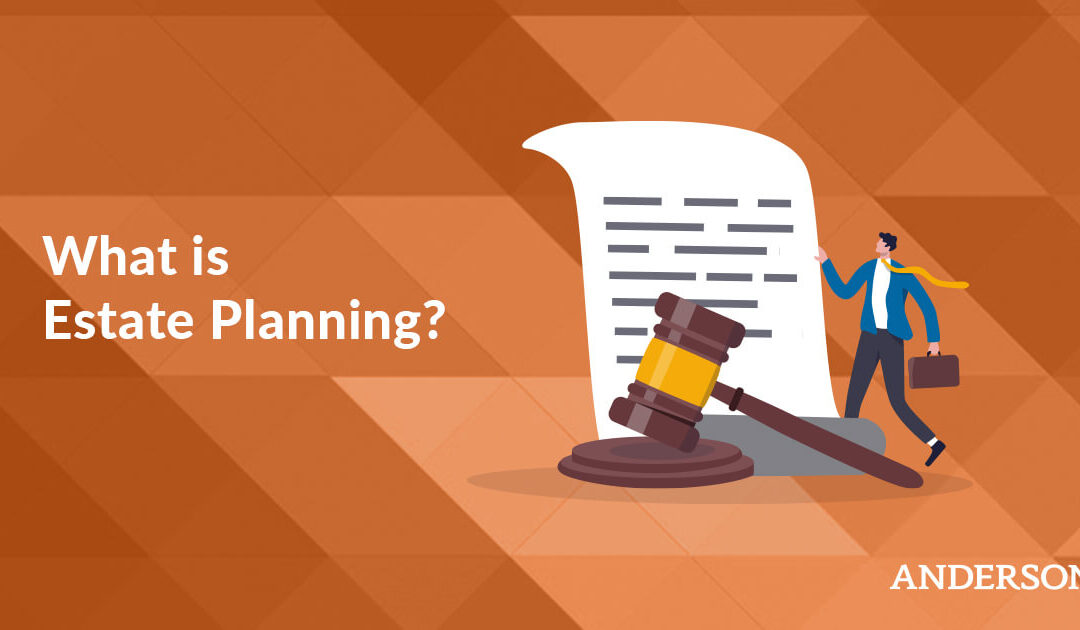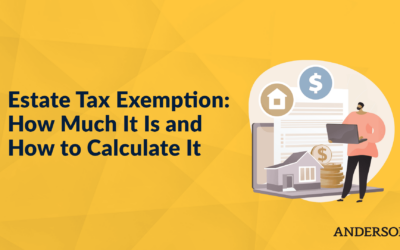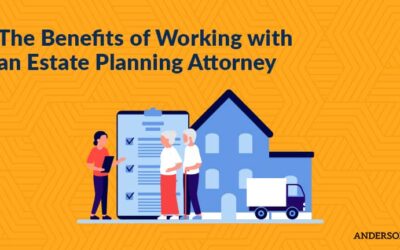
While you’ve probably heard of estate planning, you might not know what it is and if you need it. Nearly everyone has some type of asset they would like to leave to a loved one when they die. Working with a professional advisor who can help you with your estate planning needs can help ensure the right person or people get what you wish to leave them.
What Is Estate Planning?
Estate planning is the process of determining how an individual’s assets will be distributed upon their death or incapacitation. Examples of an individual’s assets include a home, car, property, stocks, artwork, jewelry, personal possessions, and financial holdings. In addition, estate planning includes limiting estate taxes, deciding on a guardian for living dependents, choosing an executor or trustee of the estate, and setting up funeral arrangements.
Often, the professional estate planner will set up a durable power of attorney and establish charitable contributions to help reduce estate taxes. With proper estate planning, you can reduce estate taxes, legal fees, and court costs.
Who Needs Estate Planning?
In essence, anyone who has any type of possessions and financial assets they want to leave to a person, group of people, or organization should consult with an estate planner. For your finances and possessions to be distributed properly and effectively, you must write out clear instructions and have them notarized.
While estate planning is prudent for those with wealth and a diverse range of possessions, even a person with modest assets should consider estate planning. Having the proper estate plan in place can help reduce costs involved with the transference of goods and property titles so more of the asset money can go toward the beneficiary.
Tax & Asset Protection Workshop
Learn about Real Estate & Asset Protection at our next
FREE LIVE STREAM
What Are the Benefits of Estate Planning?
Without an estate plan, your family must work with a court under the state’s laws on the distribution of your assets. The family must cover court and legal costs, putting financial strain on individuals who can’t afford these fees.
Having an estate plan can help reduce the stress on your family upon your death or incapacitation. If you don’t have an estate plan or designated beneficiary, the courts will divide the assets according to their laws, which might not be how you intended. With estate planning, you can provide for your family how you want, not how the state or courts want.
What Is an Estate Tax?
When a person dies and leaves money or possessions to heirs or a person of choice, the receiver usually pays an estate tax. The Internal Revenue Service (IRS) bases the federal estate tax on the fair market value of any assets. You can study the IRS Form 706 to read details on what assets are subject to estate taxation, or you can consult with a financial advisor for details that pertain to your situation. With careful estate planning, you can shield your loved ones from some or all of the estate taxes.
What Should I Do to Prepare for Estate Planning?
Before consulting with a financial advisor or estate planner, do the following:
- Make a list of your assets. This should include properties, possessions, and holdings in a financial institution.
- Consider getting life insurance. Having a life insurance policy can help your family live comfortably after you’ve died.
- Choose the guardian of dependents if necessary. Pick someone to become the guardian of your children and even your pets. Consider who you want to make medical decisions for you should you become incapacitated.
- Establish necessary directives. Directives include a durable power of attorney, a medical care directive, and limited power of attorney.
- Beneficiary designations. For accounts or assets that don’t have a designated beneficiary, name the person or people you want to receive assets from your estate.
- Find your estate planner. Choose an estate planner who will help you create the perfect estate plan for your needs.
- Create a plan with your estate planner. After a consultation with your estate planner, create the plan, sign it, have it notarized, and store it in a safe place.
- Update the estate plan as needed. Update your estate plan as your life changes, such as with the birth of a child, a marriage or divorce, or the death of a beneficiary.
What Types of Estate Plans Can I Have?
Once you’ve had a consultation with your professional estate planner, the next step is to decide which plan works best for your needs. Depending on your assets and number of beneficiaries, you can choose from the following types of estate plans:
Will
A will is a simple legal document that lists where your assets go when you die. In a will, you name your beneficiaries, assign an executor, and appoint a guardian for your children. The executor of your will must pay any taxes or debts owed after your death. The executor works with the court during probate, which can be a lengthy and expensive process.
Living Trusts
While similar to a will, a living trust has a trustee that manages the assets after your death instead of an executor working with the probate court. A living trust can save your beneficiaries significant time and money by avoiding excessive estate taxes, court costs, and legal fees. A living trust doesn’t allow you to name guardians for young children, so many people have both a will and a living trust.
Do I Need Help With My Estate Planning?
Consulting with a professional financial and tax advisor can help you avoid probate and ensure your assets and property go to the people you care about. A financial advisor can help with your estate planning needs in the most cost-effective and tax-efficient way.
Our team at Anderson Legal, Business & Tax Advisors can help you with your estate planning and asset protection needs. Contact us today to get started on your estate planning strategy to ensure your loved ones will benefit from the smooth and cost-effective transfer of your assets.
Free Strategy Session with an Anderson Advisor
Receive a detailed risk assessment to assist in lowering problem areas that could wipe out all of your assets with one wrong move. Speak with an Anderson Professional Advisor to get your FREE Strategy Session. Limited-Time Offer: FREE (a $750 value.)















